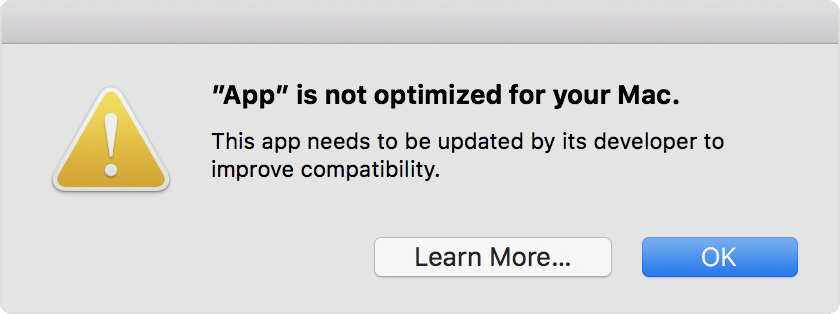Mac Quicktime Asking For Java
I found instructions for enabling java libraries in quicktime on a Windows based computer (and used this to get the program working on my Dell). Please let me know what I need to do, or if you need more information to help. More Apple news: as much as I'm loving macOS Sierra, there's no doubt that it.
Note Here, as in many examples, you should type the entire command on one line. It’s broken up in the text for printing purposes. Cadamson% javac -classpath /System/Library/Java/Extensions/QTJava.zip src/com/oreilly/qtjnotebook/ch01/QTVersionCheck.java On Windows, the path to QTJava.zip would point to wherever the QuickTime installer put the file, which presumably means into your Java installation’s lib/ext: C: qtjtests book stuff code>javac -classpath 'c: Program Files Java j2re1.4.2 lib ext QTJava.zip' src com oreilly qtjnotebook ch01 QTVersionCheck.java Once the code compiles, running it is a lot easier—you don’t need to explicitly put QTJava.zip in the runtime classpath to run a QTJ application. Just supply the class name to run, as the following output illustrates. The Latest and Greatest This book covers QTJ 6.1, which was released alongside QuickTime 6.4. If your software reports a lower version, be sure to update with the QuickTime Updater because QTJ 6.1 has massive differences from previous versions, and this book covers only QTJ 6.1. How different is QTJ 6.1 from its predecessors?
Try “every QTJ application broke with 6.1.” The problem was caused by Apple changing the internals of its Java implementation from the Carbon framework to Cocoa for its Java 1.4 implementation. QTJ was heavily dependent on Carbon for its native binding, and a full-blown rewrite for Cocoa was impractical. However, only the parts involving the AWT/Swing bridge were affected—most of QTJ still worked just fine. So, Apple rolled out a radically simplified GUI layer for QTJ in the new quicktime.app.view package. All the incompatible packages, particularly quicktime.app.display and its subpackages, were deprecated. A few nice-to-have features, like live-video compositing, weren’t ported to 6.1.
QTJ 6.1 can be used on Mac OS X with either Java 1.4 or Java 1.3, and on Windows. Earlier versions work on Windows and with Java 1.3 on Mac OS X, but will throw runtime exceptions with Java 1.4. Parts of Apple’s web site and older books still cover the old API. If you see code that uses quicktime.app.display, or any of its classes (like QTCanvas, SGDrawer, or SWCompositor), beware: it won’t work on Java 1.4 on Mac OS X and won’t be supported going forward. Antivirus for mac softonic. These packages are also in the Javadocs, but they’re clearly marked as deprecated.
With Safari, you learn the way you learn best. Get unlimited access to videos, live online training, learning paths, books, interactive tutorials, and more.
Last year, Chrome's team promised to add some features that. One of them is already included in the latest dev builds: 'some plug-ins are widely installed but typically not required for today's Internet experience. For most users, any attempt to instantiate such a plug-in is suspicious and Google Chrome will warn on this condition.' Two of the plug-ins that require permission every time you visit a site that uses them are Oracle's Java and Apple's QuickTime. The two plug-ins are enabled by default, but you need to click 'Run this time' or 'Always run on this site' to load the full content of the page.
You can manually whitelist domains, but there's no way to disable the infobar. While not many sites use these plug-ins, it's surprising to see that Chrome requires permission before loading Java or QuickTime content, even if you've updated to the latest version of the plug-in. The infobar warning is annoying, some users might ignore it, while others could think that the page tries to install malicious software.

'The reason is to protect the (estimated 90% - 95%) of internet users who do not ever need to instantiate various lesser-used plug-ins. Remember that you just have to press a single button on the sites that you trust to run Java. And then you're done. In fact you're much better than done: you've limited your exposure to Java security vulnerabilities such that a drive-by malware Java ad won't automatically run. I encourage you to read about the evolution of drive-by downloads and pay particular attention to how Java is being used in a lot of current attacks, even when it is fully up to date,'. Informs that 'a Java exploit has replaced exploits of PDF file weaknesses to become the most common threat, according to G Data SecurityLabs. Java vulnerabilities offer cyber criminals a lot of potential on the technical side, said researchers, and the development and distribution of malicious code is considerably easier than other methods of infecting a system.
Adobe acrobat 9 pro mac os x download windows 7. You can also track the status of your documents and analyze the results with this Adobe PDF editor.